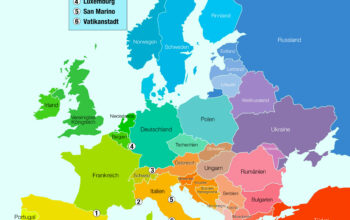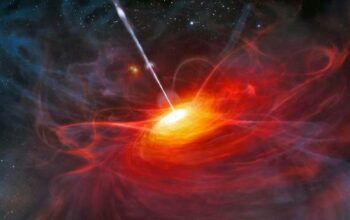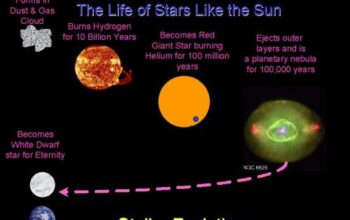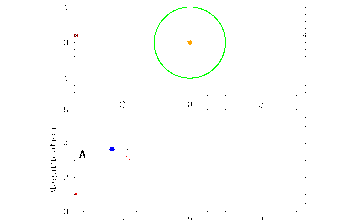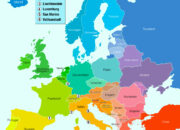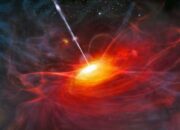Black holes, enigmatic deployments of gravitational influence, have long fascinated scientists and laypeople alike. Their properties evoke curiosity about the fundamental nature of the universe. What resides beyond the event horizon? How can a region of spacetime be so distorted that nothing, not even light, can escape its clutches? These questions are paramount in astrophysics and offer fertile ground for both theoretical exploration and empirical investigation. In recent explorations, a novel proposition emerges: how does our understanding of black holes change if we view them through the lens of information theory? This perspective could pose a challenge to traditional paradigms, prompting us to rethink the implications of black hole entropy and the very fabric of reality itself.
To embark on this journey, one must first grasp the foundational aspects of black holes. At their core, these objects are regions of spacetime exhibiting gravitational forces so intense that nothing can escape their gravitational pull. Formed from the remnants of massive stars that have exhausted their nuclear fuel, black holes present a trio of defining characteristics: mass, charge, and angular momentum. The most commonly discussed types include stellar, supermassive, and intermediate black holes, each distinguished by their respective formation processes and scales.
Consider the classic analogy of a whirlpool in water, where the swirling motion creates a region at the center that nothing can escape from—this is akin to a black hole’s event horizon. However, what lies beyond this threshold? Theoretical physicists have proposed various models and hypotheses, ranging from singularities to quantum foam, yet definitive answers remain elusive. The very existence of a singularity—where density becomes infinite—challenges conventional physics and raises profound questions about the limits of our understanding of the universe’s laws.
Within this enigmatic cosmic landscape, the interplay between black holes and the laws of thermodynamics presents another layer of complexity. The concept of black hole thermodynamics posits that black holes possess entropy, leading to a remarkable conclusion: black holes can be thought of as thermodynamic systems. The entropy of a black hole is proportional to the area of its event horizon, encapsulated by the Bekenstein-Hawking formula. This relationship prompts an inquiry into how information is preserved in a universe governed by the principles of quantum mechanics.
Herein lies the playful question: if information is fundamentally indestructible, as suggested by quantum theory, what happens to the information that crosses a black hole’s event horizon? The so-called “information paradox” has puzzled physicists for years. Do black holes obliterate all information that falls into them, or do they preserve it in some form? Such conundrums invite investigation into theories that transcend classical notions, including holography and string theory, which suggest that the fabric of spacetime itself may encode information in a lower-dimensional format.
Recent advancements in theoretical frameworks have introduced concepts such as wormholes and traversable pathways linking disparate regions of spacetime. These speculative ideas present a challenge to our conventional views of causality and time. If such pathways exist, what implications would this have for our understanding of black holes? Could they serve as conduits for information exchange, potentially allowing for communication across the cosmos? The possibilities are tantalizing, albeit wrapped in layers of complexity.
To augment this discourse further, one must also consider the ramifications of Hawking radiation. Proposed by Stephen Hawking, this phenomenon suggests that black holes are not entirely “black” but can emit radiation due to quantum effects near the event horizon. The implications of this radiation challenge the notion of permanence associated with black holes. If they can emit particles and potentially evaporate, how does this interplay with the aforementioned information paradox? Does information leak out with Hawking radiation, or is it somehow retained? This question stands at the frontier of modern theoretical physics and necessitates rigorous inquiry.
Moreover, the study of black holes does not exist in isolation but is integrally connected to the fields of cosmology, quantum field theory, and even computational physics. Theoretical models are being constructed to simulate black hole interactions, allowing researchers to glean insights that could be unattainable through observational means alone. The integration of artificial intelligence and high-performance computing in these simulations may soon unravel nuances of black hole dynamics that were previously unimaginable.
As we traverse this intellectual landscape, one must also contemplate observational techniques and technologies that could lead to new discoveries. The Event Horizon Telescope, which captured the first image of a black hole’s shadow in 2019, has provided unprecedented insights into these cosmic phenomena. Future observational campaigns are expected to improve our understanding of black hole formation, growth, and their role in galactic evolution.
Ultimately, the quest for understanding black holes is emblematic of the larger struggle to comprehend the universe’s fabric. It serves as a nexus for questions that defy easy answers and invites thinkers across disciplines to converge. The interplay between black holes and information theory cleaves deeper into the philosophical underpinnings of reality itself. As research in this field evolves, the challenge remains: to illuminate the shadowy realms that black holes inhabit while grappling with the implications of such knowledge on our understanding of existence.
In summary, the study of black holes extends beyond their gravitational allure; it pierces the core of our understanding of time, space, and information itself. As inquiry into these celestial objects unfolds, the playful questions they inspire lead to profound challenges that beckon a re-evaluation of the very principles governing the cosmos. The journey into this dark frontier may ultimately yield insights that illuminate not only the nature of black holes but also the profound mysteries of our universe as a whole.

